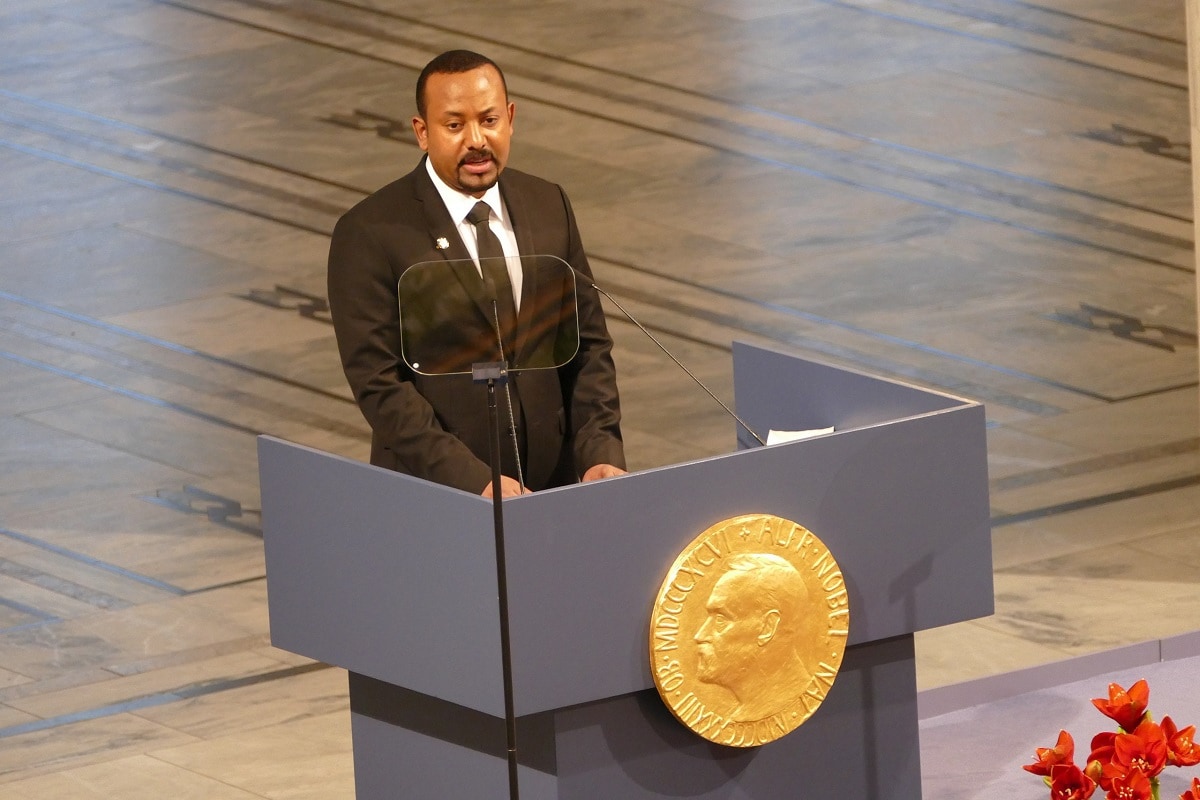Just under three weeks ago, the African Union brokered a truce in the two-year war between the Ethiopian government and the Tigray Defense Forces. The war was both tragic and unnecessary, rooted in a slaughter planned by Prime Minister Abiy Ahmed, a Nobel Peace Prize laureate, and Eritrean dictator Isaias Afwerki in order to punish Tigrayans collectively for political defiance and grievances rooted in the pre-Abiy era. Tigrayan negotiators in Pretoria faced a stark choice: Accept an unjust truce, or deal with a continued stalemate and a siege that might claim hundreds of thousands more Tigrayan lives.
The State Department and the broader international community have cautiously welcomed the truce. There are red flags, however. The peace agreement did not include Eritrea, whose forces continue to occupy Tigray, where they loot, rape and summarily execute civilians. And while Abiy allows some trucks to carry food and relief into the region, the numbers suggest this is an effort to relieve international pressure. It allows Abiy to feign compliance, but it won’t alleviate famine.
The world needs to remember the lessons learned from the oil-for-food scandal involving the United Nations and deceased Iraqi dictator Saddam Hussein. In the wake of Iraq’s 1990 invasion of Kuwait, the UN Security Council imposed sanctions on Iraq. While Resolution 661 did not prohibit Iraq from importing food and medicine, Saddam sought to maximize the propaganda value of sanctions by arguing that the penalties, rather than his regime’s cruelty, were responsible for suffering and starvation. The United Nations responded in 1995 with Security Council Resolution 986, which was the backbone of the oil-for-food program. The logic was simple: The UN could broker Iraqi oil sales and use the proceeds to purchase necessities for the Iraqi people. For several years, Saddam’s regime refused to allow the program, arguing that the affront to Iraqi sovereignty was simply too great. Ultimately, the Security Council compromised, allowing the Iraqi regime to run the contracting and disbursement of proceeds, but under UN supervision.
A program that was theoretically humanitarian in nature soon became anything but. UNICEF statistics show how the child and infant mortality figures increased once Saddam inserted himself in the program. Saddam regularly invited journalists to photograph starving babies. He would use the images to incite anti-Western sentiment and rally reactionary forces around his regime. Behind the scenes, he not only refused to buy baby formula with money the UN provided for that purpose, but he actually exported baby food for profit. At no point under sanctions did Iraq lack food or medicine. Hussein simply refused to allow its distribution to his perceived internal opponents among Iraq’s Shiite and Kurdish populations. Meanwhile, he skimmed billions of dollars off the humanitarian funds entering Baghdad.
Herein lies the danger with Abiy. While Saddam had delusions of grandeur, seeing himself as the successor to Babylonian emperor Nebuchadnezzar, those who have known Abiy over the years say he has a messiah complex colored by his mother’s evangelicalism. Neither Saddam nor Abiy was willing to allow morality or law to interfere with what they believed to be their right to channel divine retribution upon their enemies. Saddam reluctantly agreed to silence his guns in 1991, but he continued his efforts to weaponize aid and use it for propaganda. Abiy already appears to be doing the same. He seeks to amplify the photos of aid delivery to relieve diplomatic pressure on his regime, while ensuring that he allows nothing through that could help Tigray recover. Unfortunately, his efforts seem to be working. U.S. President Joe Biden has now invited Abiy to the U.S.-Africa Leaders’ Summit, a questionable honor for a leader whose bloodlust has killed more civilians than even Russian President Vladimir Putin.
The United States might welcome the truce, as incomplete as it is, but this is no reason to allow Abiy’s rehabilitation. To allow Abiy a platform on the world stage is to empower a leader who models himself after Isaias Afwerki, the continent’s most repressive ruler.
Ethiopians of all ethnicities deserve better. Too much is at stake for the international community to repeat the mistakes it made toward Saddam during Iraq’s inter-war years.

